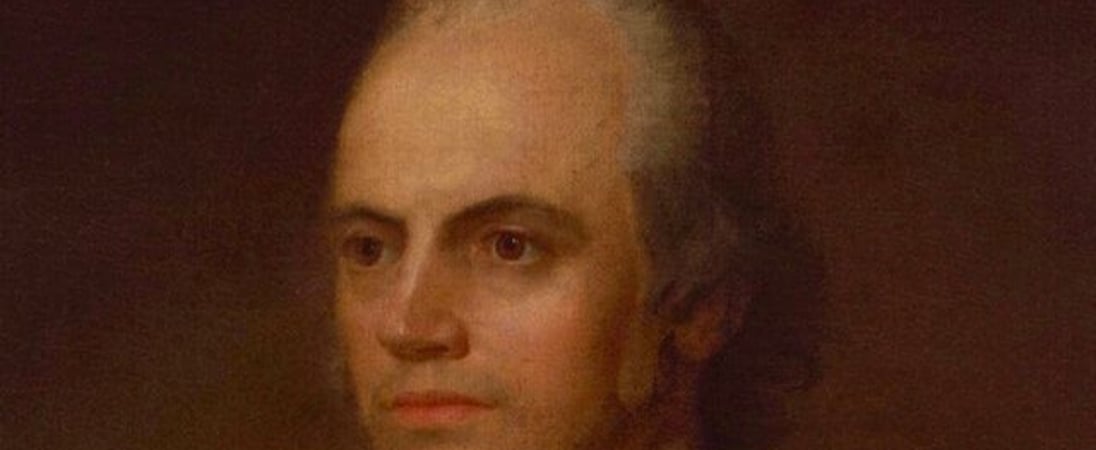
Aaron Burr's birthday
Aaron Burr, born on February 6, 1756, led a life full of remarkable events. He became well-known as a political figure in early American history.
Burr’s career spanned various roles, including lawyer, senator, and Vice President under Thomas Jefferson. His life, however, is often remembered for a famous duel with Alexander Hamilton, which tragically ended Hamilton’s life.
Despite this notoriety, Burr’s contributions to early U.S. politics and legal developments remain significant. His story reflects the nation’s founding period’s complex and often turbulent nature.
Aaron Burr’s Early Years
Aaron Burr was born into a notable family on February 6, 1756, in Newark, New Jersey. His father, Aaron Burr Sr., served as a Presbyterian minister and president of the College of New Jersey, now Princeton University.
His mother, Esther Edwards Burr, came from a distinguished lineage as well. Tragically, both parents passed away when Aaron was just a young child, leaving him and his sister orphans.
Raised by relatives, Burr showed early signs of sharp intellect and curiosity. He received his primary education at home, where he was taught by various tutors. These early years shaped his keen mind, preparing him for a future in law and politics.
Burr’s academic journey took a significant turn when he enrolled at the College of New Jersey at the young age of 13.
Here, he excelled academically, standing out among his peers for his intelligence and diligence. He studied various subjects, from classical languages to mathematics, demonstrating a diverse and profound understanding of the world around him.
Graduating with a Bachelor of Arts degree at 16, Burr’s education laid a strong foundation for his later achievements.
His time at college equipped him with knowledge and instilled in him a sense of discipline and determination, traits that would define his career and life.
Aaron Burr’s early years, marked by personal loss and academic triumph, set the stage for his complex and impactful journey in American history.
Triumphs and Achievements of Aaron Burr
Aaron Burr’s journey to success began with his career in law. After studying law, he quickly gained a reputation as a skilled and persuasive lawyer.
His practice flourished in New York, where he tackled many cases. Burr’s legal acumen earned him respect and recognition in the early American legal community.
Burr’s political career was equally impressive. He first served in the New York State Assembly, advocating for various reforms.
His ability to navigate complex political landscapes led to his election as U.S. Senator from New York in 1791. Here, Burr demonstrated his talent for strategic thinking and effective leadership.
The pinnacle of Burr’s political career came in 1800 when he became the third Vice President of the United States. Serving under Thomas Jefferson, Burr played a key role in the early administration of the country.
Though controversial, his tenure as Vice President was marked by significant contributions to the nation’s early political framework.
Burr’s achievements extended beyond politics and law. He supported education and founded the Manhattan Company, which later became the Chase Manhattan Bank.
This venture showcased his foresight in finance and his commitment to developing American infrastructure.
Throughout his life, Aaron Burr displayed remarkable versatility. He was a lawyer, politician, and financier who left a lasting imprint on various facets of early American society.
Despite the controversies that clouded his later years, Burr’s successes and achievements in his prime years remain a testament to his diverse talents and enduring impact on the nation’s history.
Interesting Facts About Aaron Burr
Military Service: Burr served as an officer in the Continental Army during the Revolutionary War. He distinguished himself with bravery and strategic insight.
Expedition to Canada: He took part in the ill-fated invasion of Quebec in 1775, an experience that tested his endurance and military skills.
Political Rivalry: Burr and Alexander Hamilton had a long-standing political rivalry that culminated in their famous duel.
Western Conspiracy: After his vice presidency, Burr was involved in a mysterious scheme, often referred to as the Burr Conspiracy, which aimed to create an independent nation in the center of North America.
Trial for Treason: Burr was tried and acquitted of treason in 1807, which stemmed from his alleged involvement in the Burr Conspiracy.
European Exile: Following the treason trial, Burr lived in Europe for several years, attempting to garner support for his plans and evade creditors.
Return to Law: Upon returning to the United States, Burr resumed his legal practice and remained active until his death.
Cultural Influence: Burr’s life and political career have been depicted in various works of art, literature, and, more recently, in the popular musical “Hamilton,” highlighting his complex legacy in American culture.
Also on this date...
National Frozen Yogurt Day
Indulge in a cool, creamy dessert that's good for you! Top it with your favorite fruit and feel the guilt-free satisfaction.
National Chopsticks Day
Take part in an ancient tradition that has been around for thousands of years in the Asian culture by eating with and enjoying the unique experience of chopsticks.




